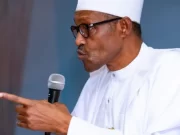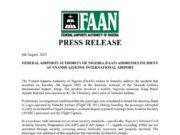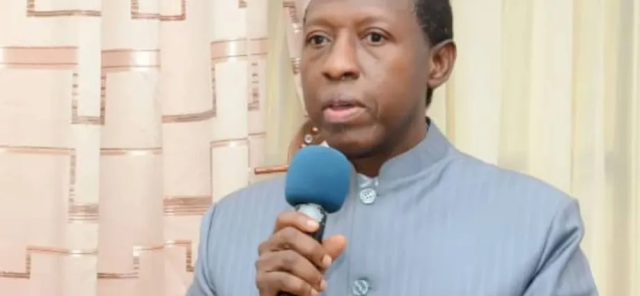
A leading African Regional Economic Integration Law and Policy Analyst, Professor Muhammed Tawfiq Ladan, has uncovered innovative solutions to bridge the budget financing gaps in infrastructure development, as Africa’s infrastructure development ambitions face significant financing gaps, with the continent requiring between $130-180 billion annually to bridge the infrastructure deficit.
Professor Ladan, in a paper titled, “Bridging the Budget Financing Gaps in Infrastructure Development in Africa”, revealed that the African Development Bank estimates that the continent’s infrastructure gap stands at between $68-108 billion annually. He highlighted that Sub-Saharan Africa invested about 3.5% of its GDP in infrastructure in 2023, falling short of the 7.1% needed to meet the UN’s Sustainable Development Goals.
Egypt topped the list of African countries in terms of infrastructure investment growth in 2023, receiving $2.3 billion in private sector funds. South Africa followed closely with $1.04 billion, while Senegal and Nigeria received $316 million and $133 million respectively.
Nigeria’s infrastructure deficit is estimated to reach $878 billion by 2040, with the country’s current infrastructure stock constituting only 30% of GDP, far below the World Bank’s benchmark of 70%. The federal government’s budgetary allocation for infrastructure in 2024 was N1.32 trillion naira, a mere 5% of the total budget.
Private sector investment in Nigerian infrastructure has been low, totaling $8.4 billion from 2013 to 2023. In contrast, South Africa received $17.2 billion in private sector investments during the same period.
African governments are grappling with formidable challenges stemming from over-leveraged balance sheets and soaring debt repayment obligations. The surge in debt accumulation has raised debt-to-GDP ratios, surpassing internationally recognized thresholds for sustainable debt levels in some countries.
This raises the risks of debt distress, making it harder to finance much-needed infrastructure spending. Compounding the fiscal challenges, Africa struggles with relatively low revenue mobilization, exemplified by its lower tax-to-GDP ratio.
Corruption in large infrastructure projects and insufficient revenue mobilization, as well as volatile commodity prices, further limit the fiscal space available for investment spending.
Inadequate infrastructure adds 30-40% to the cost of intra-regional trade, with only 15% of Africa’s trade being intra-regional. In comparison, 60% of Asian trade and 70% of European trade are intra-regional.
The Nigerian government is exploring innovative financing options, including Islamic finance and sukuk bonds, to bridge the infrastructure financing gap. Sukuk bonds have proven effective in financing infrastructure projects, with Nigeria raising N612.56 billion naira through three issuances since 2017.
The federal government’s plan to issue its first dollar-denominated sukuk, valued at $500 million, is a step in the right direction. Experts argue that Islamic finance can serve as a complementary source of funding for infrastructure development in Nigeria and other African countries.
Islamic finance assets have grown rapidly to about $3.96 trillion in 2021 and are expected to reach $5.96 trillion by 2026. Nigeria’s Islamic finance industry grew to N2.5 trillion naira in 2023, up from N1.5 trillion naira in 2022.
One notable example of the successful application of sukuk bonds in Nigeria is the financing of the N100 billion Sukuk bond issued in 2017, which was used to fund the construction of 25 roads across the country. The bond was oversubscribed, demonstrating the appetite of investors for Shariah-compliant instruments.
The use of sukuk bonds has also been instrumental in financing other critical infrastructure projects in Nigeria, including the construction of the Abuja-Kano highway and the Lagos-Ibadan railway. The impact of these projects has been significant, with improved transportation networks enhancing economic growth, reducing poverty, and increasing access to basic services.
Moreover, the use of sukuk bonds has helped to deepen Nigeria’s financial markets, attracting new investors and providing a new source of funding for infrastructure development. As Africa strives to bridge its infrastructure financing gaps, innovative financing options like Islamic finance and sukuk bonds offer a promising solution.
He stressed that by unlocking these options, Nigeria and other African countries can drive economic growth and development.


























